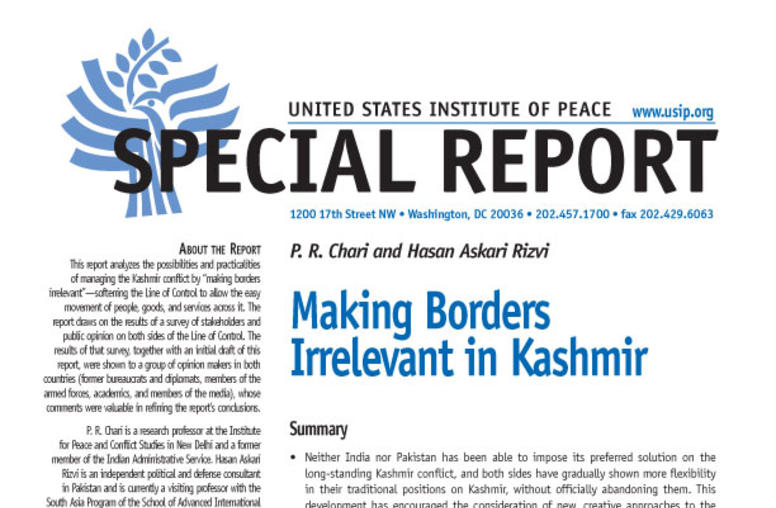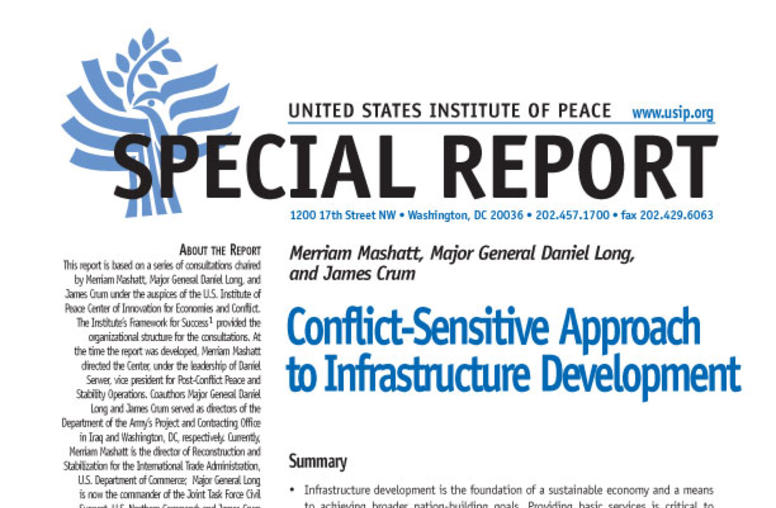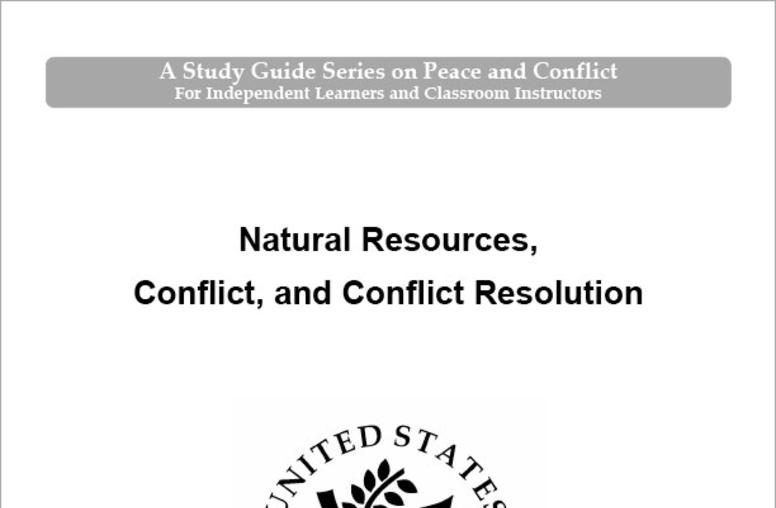Question And Answer
Publications
Articles, publications, books, tools and multimedia features from the U.S. Institute of Peace provide the latest news, analysis, research findings, practitioner guides and reports, all related to the conflict zones and issues that are at the center of the Institute’s work to prevent and reduce violent conflict.

Making Borders Irrelevant in Kashmir
In this report, a duo of experts from India and Pakistan explore the prospect of "making borders irrelevant" in Kashmir through increased movement of people, goods and services across the "Line of Control." The findings draw on the results of a survey of stakeholders and public opinion on both sides.
Keeping an Eye on an Unruly Neighbor: Chinese Views of Economic Reform and Stability in North Korea
What is the nature of internal Chinese debate regarding North Korea? In the event of instability in the Korean peninsula, how would Beijing respond? Drawing on discussions with North Korea specialists during a Center for Strategic and International Studies-USIP delegation visit to the People's Republic of China, this report explores these and related issues.

Conflict-Sensitive Approach to Infrastructure Development
What is the nexus between conflict analysis and building infrastructure? What roles can new and upgraded buildings, highways, and the like play in winning the "battle for hearts and minds?" How can the U.S. government streamline processes aimed to facilitate infrastructure development in conflict zones?
Afghanistan's Economy: On the Right Road, But Still a Long Way to Go
Although Afghanistan has now laid the foundation for a market-based economy, substantial challenges still linger. Many of the problems Afghanistan’s economy faces are typical for those rebuilding after war: high prices from an immature system that lacks adequate private sector competition; resistance to change from a state-controlled system; the dearth of human capital; corruption; insecurity; and inequalities created by the market system itself.
The Eastern Sudan Peace Agreement: Taking Stock and Moving Forward
Amidst the conflict in Darfur and simmering tensions in the south of the country, USIP is working with regional partners to bring about a peace accord in the eastern part of Sudan. This USIPeace Briefing outlines the process, which incorporates steps in political reconciliation, disarmament, and economic development.

Natural Resources, Conflict, and Conflict Resolution
Competition over natural resources such as oil or diamonds can lead to, intensify, or sustain violence—the resource curse—but natural resources can also play a role in managing and resolving conflict and preventing its reoccurrence. This study guide will illuminate the role of natural resources as causes of conflict, and their role in helping to bring about peace.
The Central African Republic: Worsening Crisis in a Troubled Region
Recently, internal conflicts stemming from past and present realities and spillover of political unrest and violence from neighboring countries have given the Central African Republic, one of the least known countries in Africa, more prominence on the international map. Read more about this troubled region.
Haiti's Drug Problem
At their White House meeting on May 8, 2007, President Bush promised Haitian President Rene Preval that the United States would do more to help Haiti fight drugs and drug traffickers. What is the effect of narcotics trafficking on Haiti's security and stability? What is the nature of U.S. counter-narcotics assistance?
Zimbabwe’s Latest Crackdown: Responses and Consequences
The socio-economic and political conditions in Zimbabwe have been declining for years, but on March 11, 2007, they seemed to take a dramatic turn for the worse. Against these worsening conditions, USIP convened a public meeting to discuss the triggers leading to the March 2007 crackdown, the changes within the political parties in Zimbabwe, the challenges facing civil society organizations (CSOs), and the public’s response to past political violence.
Is Iran Facing an Economic Crisis?
Western policy toward Iran relies heavily on economic pressure, and Iran's political trajectory is shaped in large part by its economic prospects and constraints. What is the state of the Iranian economy? The Iran Policy Forum tackled this question in their latest meeting.